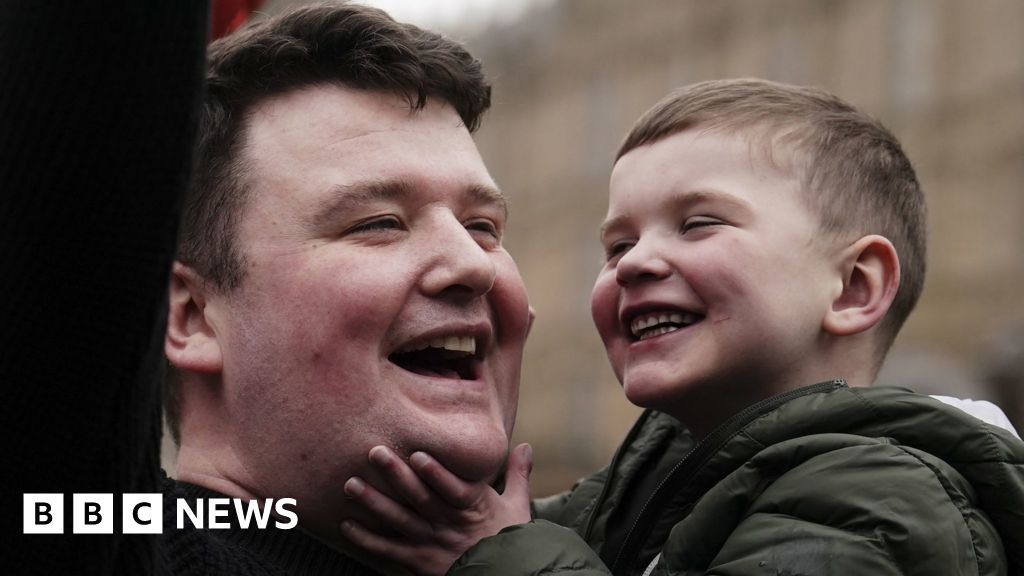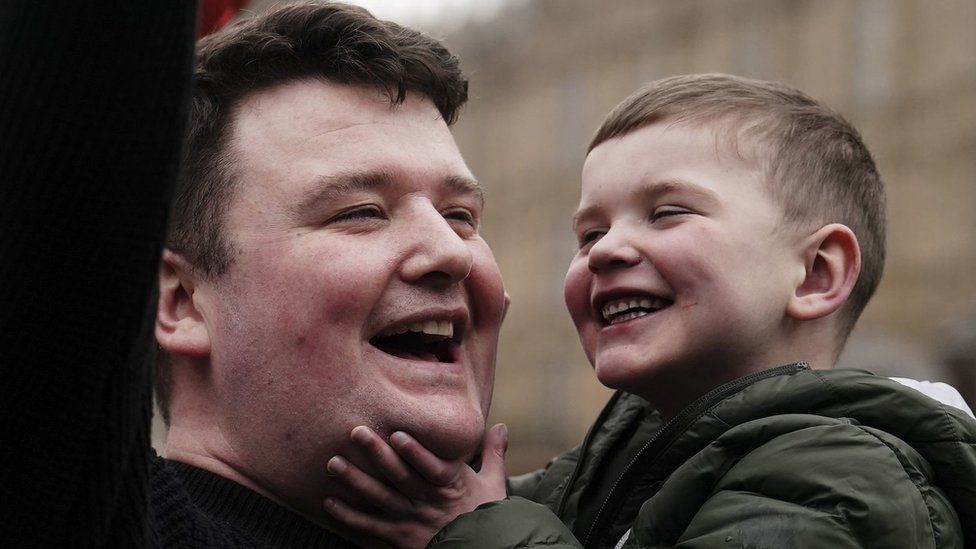文章管理 查看文章



Most adults in Northern Ireland will be considered potential organ donors unless they opt-out from 1 June, the Department of Health has said.
It follows the passing of Daithi's Law in Westminster last week.
The legislation is named after six-year-old Dáithí Mac Gabhann, who needs a heart transplant.
It had been delayed due to the political stalemate at Stormont, however, the government then stepped in to ensure it could take effect.
The Department of Health at Stormont has now said a three-month implementation period will take place.
This will include a public education and awareness campaign by the Public Health Agency to ensure people understand the new opt-out system and choices people will have.
Those excluded from the new deemed consent law are:
Specialist nursing staff will continue to speak to families about donation, as well as considerations around faith and beliefs, before any organ or tissue donation goes ahead, the department added.
'Lifesaving organs'
Its permanent secretary Peter May said 1 June will mark another important milestone for organ donation in Northern Ireland.
"The new law will strengthen the current legislative framework around organ donation and will increase the current rate of consent in the small number of cases in which it is clinically possible for organ donation to proceed after a person's death," he said.
"Doing so will increase the overall number of donors, and ultimately the number of lifesaving organs available for transplantation.
"I know that many people in Northern Ireland have campaigned tirelessly to raise awareness of organ donation and I want to commend them for all their work in this area."
Dáithí's father, Máirtín Mac Gabhann, had taken his campaign to Westminster to ensure Dáithí's Law was not delayed.
It was initially due to come into effect in spring 2023, but extra legislation specifying which organs and tissues are covered under the system was required and could not be passed at Stormont due to the current impasse.
The DUP is refusing to re-enter devolved government until its concerns over the NI Protocol are addressed.
I'm delighted that the Government has enabled NI’s @healthdpt to make the necessary regulations allowing for the ‘opt-out’ organ donation system in Northern Ireland to become a reality. A huge success for the #DáithísLaw campaign! https://t.co/9AdlxD9rGc
— Chris Heaton-Harris MP (@chhcalling) March 1, 2023The BBC is not responsible for the content of external sites.View original tweet on TwitterNorthern Ireland Secretary Chris Heaton-Harris said he was delighted the government could enable the legislation to "become a reality".
It was a "huge success" for the Mac Gabhann family campaign, he added.
What is Dáithí's Law?
Image source, PA Media
Northern Ireland is the only part of the UK where an opt-out organ donation system is not in place.
Dáithí's Law was introduced in the Stormont assembly in 2021 and passed its final stage in February 2022.
It would mean all adults in Northern Ireland would be considered a potential organ donor after their death unless they specifically stated otherwise.
But last month it emerged that additional legislation was needed to specify which organs and tissues were covered under the opt-out system.
Read more: What is Dáithí's Law and why has it been delayed?
Following pressure on the government, Dáithí's Law was ultimately included as an amendment to the Northern Ireland Executive Formation Act, legislation delaying the requirement for a fresh assembly election.
"It was an incredibly difficult couple of weeks to get where we wanted to be, but we are just delighted to be here now and to see that Dáithí's Law will be in effect by Spring 2023, as planned, is just the cherry on top," said Mr Mac Gabhann.
"Dáithí continues to fight every day while he waits for the gift of a new heart, and we hope that this change in law helps make organ donation the norm in society, along with education and further awareness.
"We will never stop spreading the positive message of organ donation, as we hope that one day it will save our Dáithí's life."
Related Topics